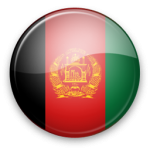Current squad
- Maniyas
- Gurinder Singh
- Navjit Singh
- Mohan Ukkrapandian
- George Andrews (captain)
- Katariya Lavmeet
- Sivasubramanian Kanagaraj
- Dilip Khoiwal
- Charles Jerome Vinit
- Govindarajan Ramakrishnan Vaishnav
- Mandeep Singh
- Manu Joseph
- Bharat Joshi Menaria
Former Players
- P.A.SULAIMAN
- Riaz Ahmed
- Ghulam Rasool Khan (Afzal)
- E K Kishor Kumar
- Balwant Singh Sagwal
- Abdul Basith
- Nripjit Singh Bedi
- Jimmy George
- K. Udayakumar
- Danikutty David
- Cyril C. Valloor
- Shyam Sunder Rao
- A. Ramana Rao
- M.AHMED ALIKHAN
- V M Kuttikrishnan
- Kuldip Vats
- Tom Joseph
- Ramavtar Singh Jakhar
- G. E. Sridharan
- Anup D'Costa
- K. J. Kapil Dev
- Tilakam Gopal
- Suresh Kumar Mishra
- A. Palanisamy
- R. K. Purohit
- Yejju Subba Rao
- Maniyas
- R.K Malik
- Vinod Sasidharan Nair
2006 Asian Games Squad
- Yejju Subba Rao
- K. J. Kapil Dev
- Siva Rajan
- M.N.Vikram
- G.Pradeep
- Tom Joseph
- Jitender Singh
- R.Rajeev
- P.S.Srikanth
- Balwinder Singh
- wasim akhtar
- Sanjay Kumar
Former Coaches
FIVB World Championship
| Championship | Venue | Position |
|---|---|---|
| 1952 | 8th |
Asian Volleyball Championship[edit]
| Championship | Venue | Position |
|---|---|---|
| 1975 | DNP | |
| 1979 | 5th | |
| 1983 | 5th | |
| 1987 | 5th | |
| 1989 | 6th | |
| 1991 | 10th | |
| 1993 | 9th | |
| 1995 | DNP | |
| 1997 | 9th | |
| 1999 | 9th | |
| 2001 | 7th | |
| 2003 | 5th | |
| 2005 | 4th | |
| 2007 | 9th | |
| 2009 | 9th | |
| 2011 | 6th | |
| 2013 | 7th | |
| 2015 | 11th |
Men's Junior Volleyball World Championship
| Championship | Venue | Position |
|---|---|---|
| 1981 | 11th | |
| 1995 | 9th | |
| 2005 | 9th | |
| 2007 | DNP | |
| 2009 | 4th | |
| 2011 | 8th | |
| 2013 | 8th | |
| 2015 | DNP |
Awards
20052005 Asian Men's Volleyball Championship
- Best Blocker:
 Yejju Subba Rao (IND)
Yejju Subba Rao (IND)
